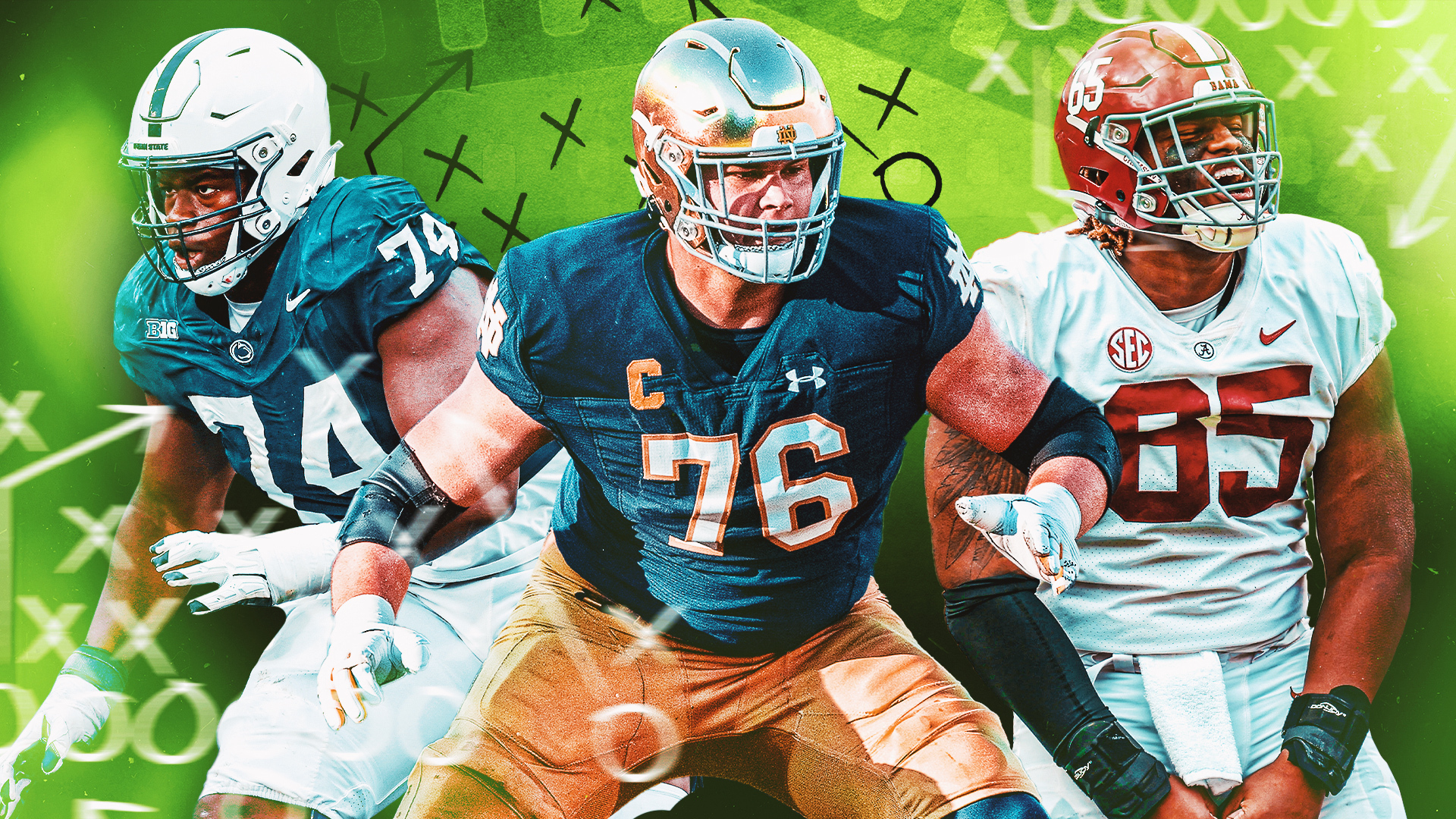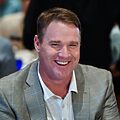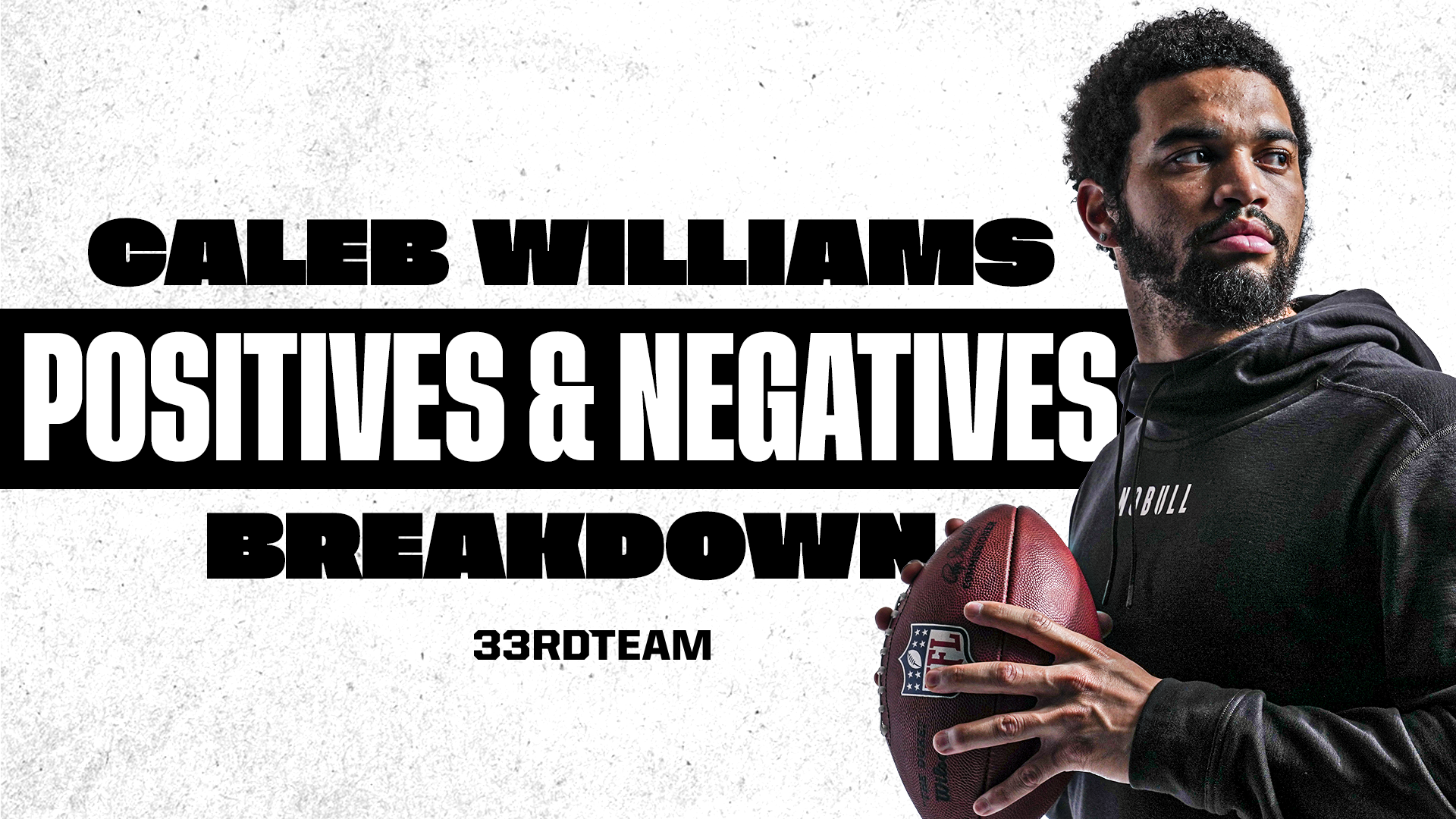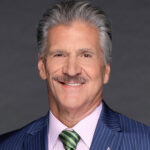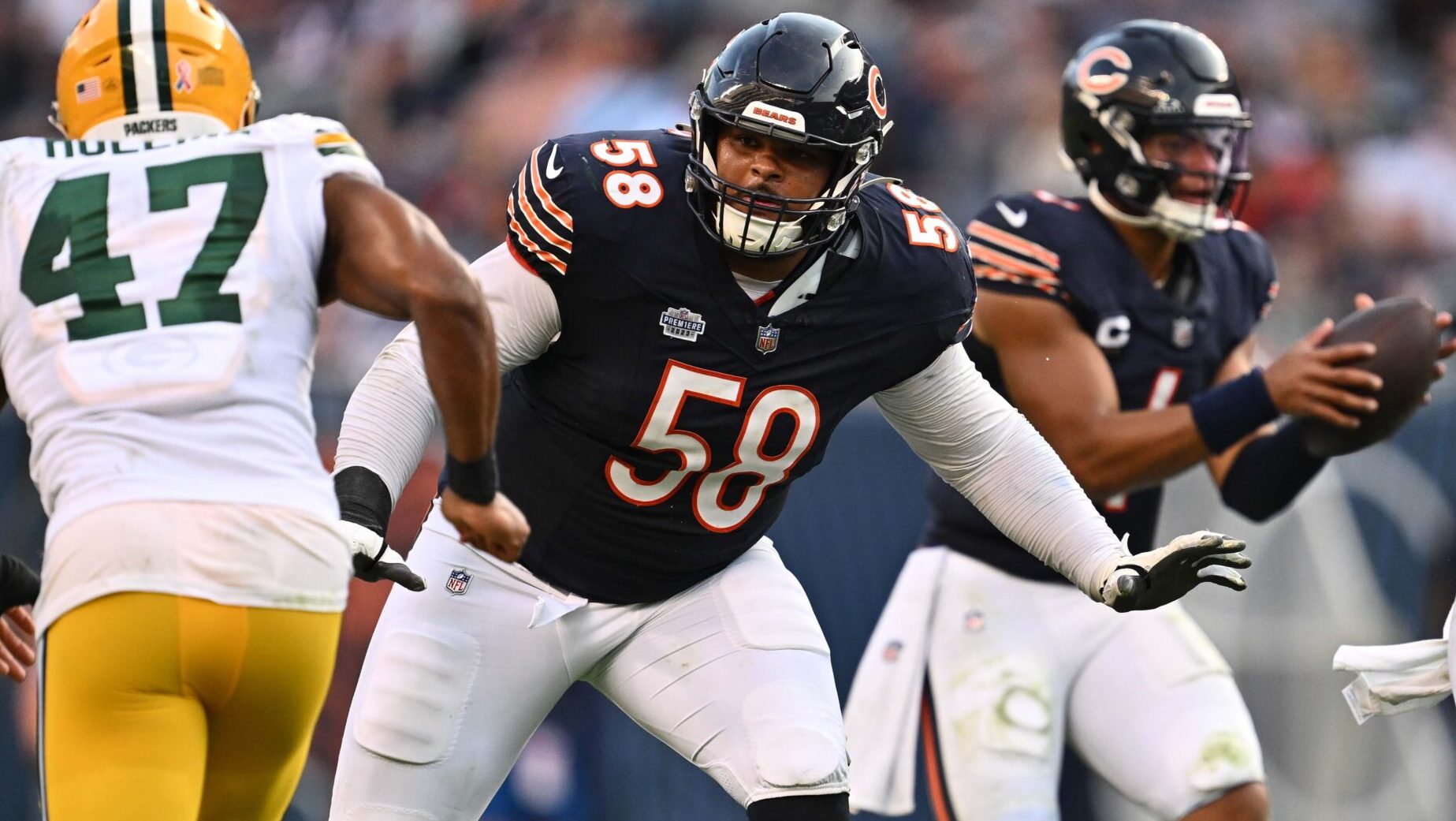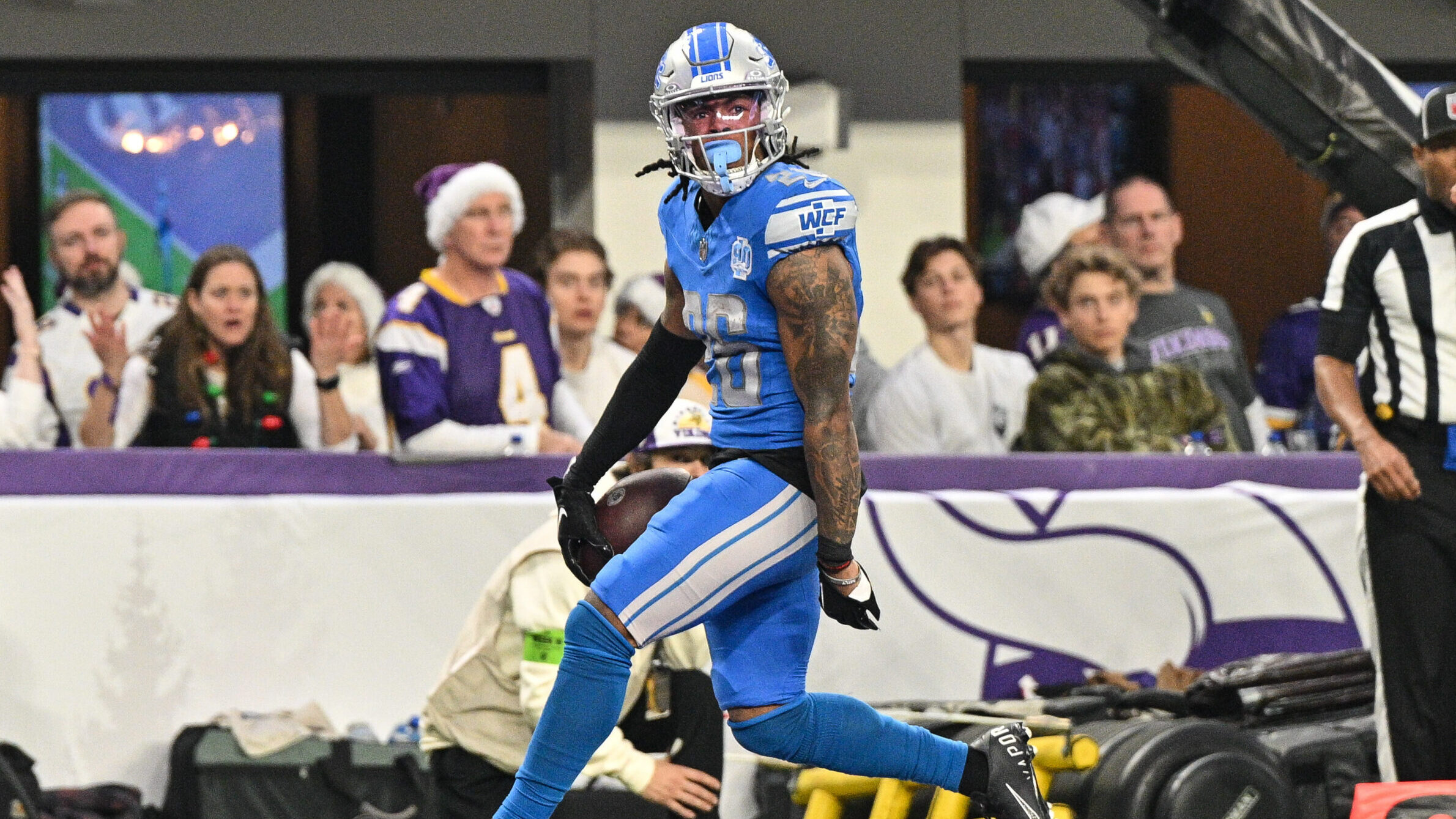Breakdowns
11/18/21
7 min read
Between The Ears: In the Modern NFL, Intelligence Is The Competitive Advantage

In partnership with Athletic Intelligence Measures, The 33rd Team is introducing a weekly feature on Sports Psychology and its effect on performance within the sport of football.
Athletic Intelligence Measures consists of three psychologists, including Doctors Scott Goldman, Jim Bowman., and Alex Auerbach. Dr. Goldman currently serves the Golden State Warriors as their performance psychologist. He has spent over 20 years working with elite programs for the Miami Dolphins, Detroit Lions, and Washington Wizards. He was also the first Director of Clinical and Performance Psychology at the University of Arizona and the University of Michigan. Dr. Bowman is a NYS Licensed Psychologist who specializes in intellectual ability assessment. He currently serves as a school psychologist for the Great Neck Public Schools, one of the most prominent districts in the country. Dr. Auerbach, the Director of Wellness and Development for the Toronto Raptors, has also spent time with the University of Arizona as Director of Clinical and Sport Psychology.
Together, the triumvirate spent 15 years creating the Athletic Intelligence Quotient (AIQ), which identifies an athletes’ mental strengths and weaknesses to aid coaches, management, and player personnel.
Each week, we will discuss an important aspect of Sports Psychology with Dr. Goldman that can help football coaches, management, and player personnel learn what Sports Psychology really is, and learn how best to put it into practice.
In today’s NFL, and in modern professional sports in general, essentially every athlete is big, fast and strong.
As the Athletic Intelligence Measures co-founder and Golden State Warriors’ performance psychologist Scott Goldman believes, the level of human performance from a physical aspect has begun to plateau.
“If you look at world records for speed events and strength events, the marginal difference between the old record and the new one is becoming smaller and smaller every time a record is broken,'' Goldman says.
“It is as if we have maximized the human physical form via strength, conditioning, and nutrition. For example, the average weight of the modern offensive lineman is 312 pounds. At some point, the human body may not be able to handle much more, resulting in more torque injuries such as torn ACLs and Achilles.”

“At the high school level, the difference between first and second place can be measured in seconds'' Goldman continues.
“By contrast, in the NFL the distance between first and second is measured in milliseconds. The fastest guys are the fastest guys. The biggest guys are the biggest. We’re now looking at milliseconds of difference physically.”
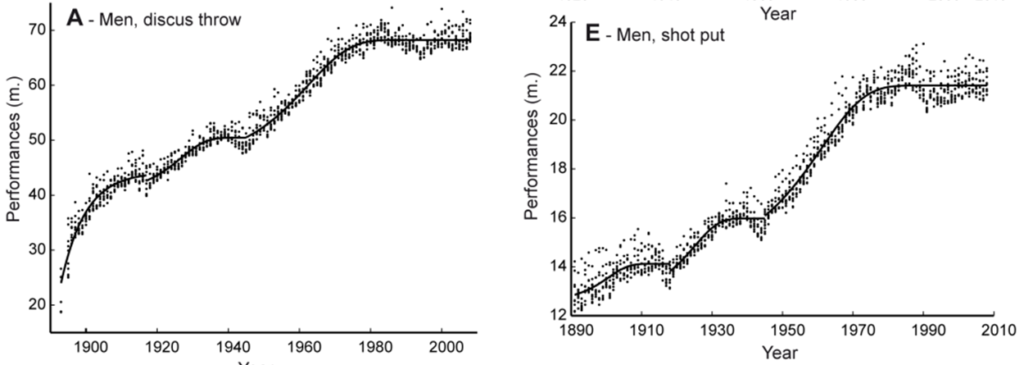
As shown in the graphics listed above, World Records for human performance in both speed and strength events have begun to level off.
If that is the case, and everybody is strong, fast and big at the highest level of professional sports, the true competitive advantage becomes, “Who can execute best?”
“Many understand that sport can be decoded with speed or with strength, but you can also do it with intellect by finding novel and efficient ways to get the job done. Remember Dick Fosbury? No one thought to do the high jump backwards until him. Now, it is considered best practice. Heck, they even named it after him — Fosbury flop” Goldman says.
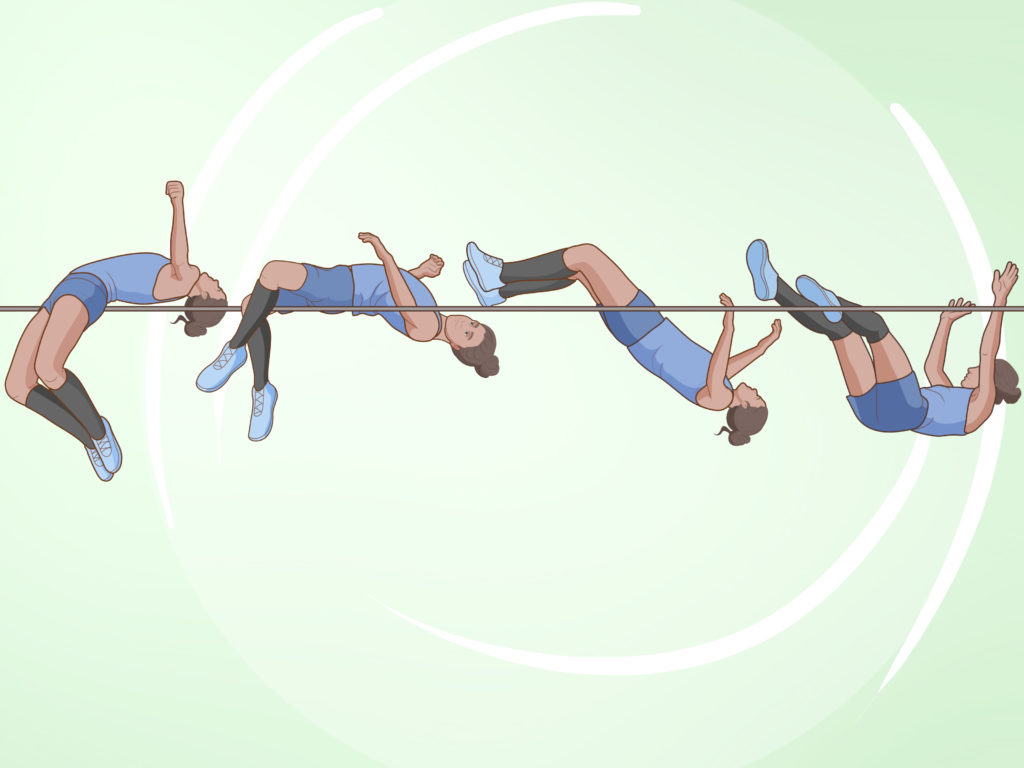
So what is it that makes intelligence a separating factor for athletic performance at the highest level?
As Goldman tells it, intelligence is simply one’s ability to acquire, process, and apply information. It’s what allows players to learn playbooks and game plans and execute them on the field or the floor. It’s fundamental to elite performance.
“Intelligence is what helps you discard a calcified way of doing something. If something is not working, you say, ‘Let’s scrap what we are doing and go in a different direction.’
“Intelligence helps you to be creative, and helps you deal with ever-evolving situations.”
The one constant in sport is change. As a result, players must process information and make decisions within milliseconds that directly affect the outcome of the play.
“Those who have never worked in professional and/or collegiate football may underestimate how complicated a task in football can be,” Goldman says. “Every play requires a ton of live-time problem solving. And, the play is constantly changing which makes the ability to succeed even more challenging.”
“For example, to the uninformed a running play may seem simple — give the running back the ball and tell him to run fast towards the end zone. In reality, zone blocking is complicated. A running back timing the hole can be complicated. Following a pulling guard and knowing when to break away from the lead block can be complicated.”
Yes, it is clear that having a keen intellect aids a football player’s decision making abilities on the field. But can a player’s intellect actually make up for deficiencies in athleticism?
According to Goldman, the answer to this question is a resounding yes.
“Intellect makes up for deficiencies in athleticism all the time,” he says. “They’re often the players that are performing at a high level and people are wondering, ‘How the heck is that guy doing it?’
There are many examples of players who have fit into this mold that Goldman describes above, such as Cooper Kupp, an FCS receiver out of Eastern Washington with 4.62 speed who has defied the odds to currently lead the NFL in catches, receiving yards, and receiving touchdowns, in large part due to his intelligence.
If a player’s intellect can indeed make up for athletic shortcomings, then the question becomes, “How does one accurately measure intelligence in sport?”
“Intelligence has been measured in a lot of different ways,” Goldman says. “For decades, intelligence has been primarily measured just in school settings. It is one of the ways we understand how a student engages in their coursework, and that understanding hopefully helps the teacher recognize how to get the best out of their student.
“The predominant theory of intelligence right now is the Cattell-Horn-Carroll (CHC) theory of intelligence. That is what the Wechsler scales, the Woodcock-Johnson, the Stanford-Binet are based on. In other words, the gold standard of intelligence testing in society is all based on that CHC theory.
“So to try to break down how to measure athletic intelligence, my partner, Jim Bowman, and I first tried to define what sport is in its simplest form, and we ultimately defined sports as an ever-evolving puzzle in a chaotic situation.
“Then we said, ‘What are the cognitive abilities essential when navigating that kind of challenge?’ So we spent 15 years researching not just sports, but other ever-evolving puzzles in chaotic situations. We looked at Firefighters, Police Officers, First Responders, Military Special Forces, in addition to all kinds of different sports.
“After identifying the most important cognitive abilities, we transitioned to identifying what would be the best methods for assessing these cognitive abilities within the CHC theory.
"We took the most empirically validated and supported theory of intelligence and the gold standard instruments that were being used in scholastic settings and looked specifically at which of those capabilities were most needed in sport. And that is how we created the AIQ.
“Then, we interviewed NCAA and NFL coaches to help us translate player specific recommendations and analysis to ensure that we were providing accurate data capture as well as meaningful and applicable solutions to benefit a team when selecting or developing talent.”
The AIQ stands for Athletic Intelligence Quotient, a way to identify an individual athlete's strengths and weaknesses in order to aid executives with player acquisition as well as coaches with player development and player placement.
You can find more information on the AIQ Test or Athletic Intelligence Measures, LLC here. To get in contact with Scott Goldman, Ph.D, please email him at info@athleticintel.com


